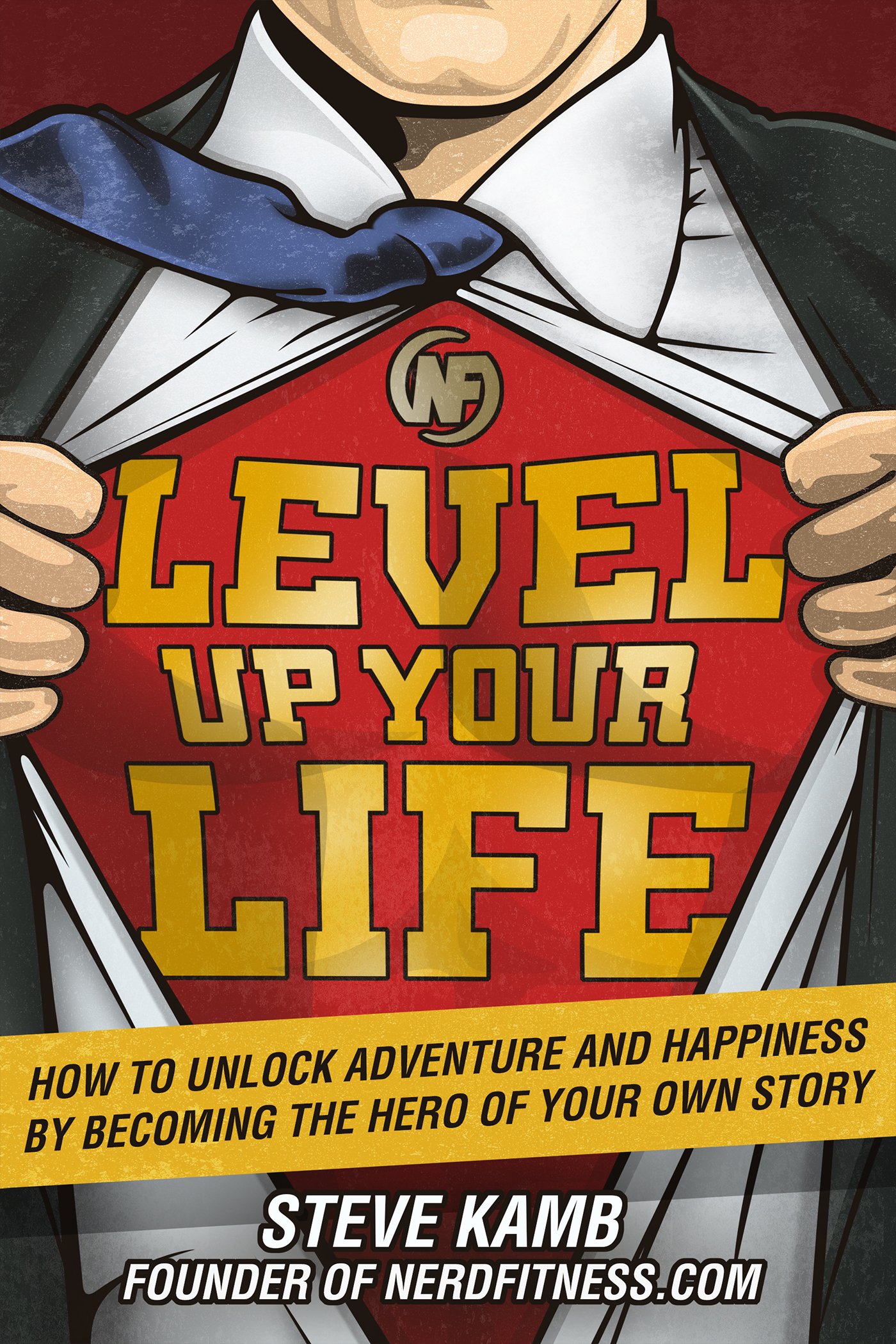
From Mario to Sonic, Candy Crush to Angry Birds, Call of Duty to World of Warcraft, video games have practically served as the testing ground for de-facto behavioral psychologists over the past few decades. Thanks to their rise in popularity, now thousands of experiments (games) and billions of test subjects have helped to reveal fundamental principles that can teach us how to live better, happier lives.
That’s right: All of that time spent on your couch playing video games or playing on your iPhone during your morning train commute can help you in your day-to-day life.
1. Games teach us to keep moving forward.
Nearly every game these days has a leveling system to show that every action you’re taking moves you toward your goal.
In the book The Progress Principle, authors Teresa Amabile and Steven Kramer show that we humans get hooked on the good feeling that comes as a result of making small steps towards a desired goal. In a video game, the path from Zero to Hero is clearly defined. Knowing what to do next is simple: kill enough bad guys, complete the right quests, and you know you’ll move forward and meet your goal.
How can you incorporate small wins and show yourself that you are making progress and “leveling up” in your real life? Try breaking down your major goal into small goals that you can cross off a daily list and rewarding yourself with a prize after completing a certain number of quests that help you build even more momentum.
2. Games give us a chance to achieve “flow” and mastery.
The best games create an experience in which we lose ourselves and become fully immersed in an alternate experience. We focus, we tackle increasingly more challenging missions, and we lose track of time.
There’s actually a scientific term for what happens when we enter this trancelike state while playing a game. “Flow,” a concept created by Mihály Csíkszentmihályi, is “the mental state of operation in which a person performing an activity is fully immersed in a feeling of energized focus, full involvement, and enjoyment in the process of the activity.”
As Time contributor Eric Barker points out:
When do you usually feel flow? It’s when you’re challenged but not beyond your skill level. Passive activities don’t create flow. Neither do overwhelming challenges.
Flow is generally reported when a person is doing his or her favorite activity – gardening, listening to music, bowling, cooking a good meal. It also occurs when driving, when talking to friends and surprisingly often at work. Very rarely do people report flow in passive leisure activities, such as watching television or relaxing.
As you are constructing your day for maximum happiness, how can you find flow in your day-to-day activity? Immerse yourself in a task at work that is challenging, rewarding and enjoyable. Spend time on a hobby after work that pushes you to improve: learning a musical instrument or a foreign language, for example. Spend more time in flow, spend more time being happy.
3. Games use play to help us exist in the present.
Not only do games force us to engage with the present moment, but they allow us to play, triggering a happiness switch in our brain. As the Harvard Gazette points out: “A human mind is a wandering mind, and a wandering mind is an unhappy mind.”
When we play games, we engage in the present in a different way. We have fun with a continuity of presence that is normally absent in our everyday life. As Dr. Stewart Brown highlights in his TED talk: “The opposite of play is not work, it’s depression. … Nothing lights up the brain like play.”
Author Daniel Pink writes in his book, Drive, that all work and no play can ruin your day. He points to a study that forced people to avoid enjoyable, fun aspects of their workplace. He found that people became sluggish, began experiencing headaches and had difficulty concentrating. Within 48 hours the deterioration in mood and sleep were so advanced that they couldn’t continue the experiment.
Do you schedule fun into your daily life? It can make you happier, more alert at work and more satisfied in your day-to-day life.
Games have been designed to stimulate your senses, push the right buttons and keep you hooked. Once you recognize this and know that they’re designed to challenge and captivate, you can reverse engineer your challenges and daily tasks into bite-sized missions with rewards and points to get you hooked on leveling up your life, too.
Press start, and play. This Game of Life is pretty epic.
More Must-Reads from TIME
- Donald Trump Is TIME's 2024 Person of the Year
- TIME’s Top 10 Photos of 2024
- Why Gen Z Is Drinking Less
- The Best Movies About Cooking
- Why Is Anxiety Worse at Night?
- A Head-to-Toe Guide to Treating Dry Skin
- Why Street Cats Are Taking Over Urban Neighborhoods
- Column: Jimmy Carter’s Global Legacy Was Moral Clarity
Contact us at letters@time.com